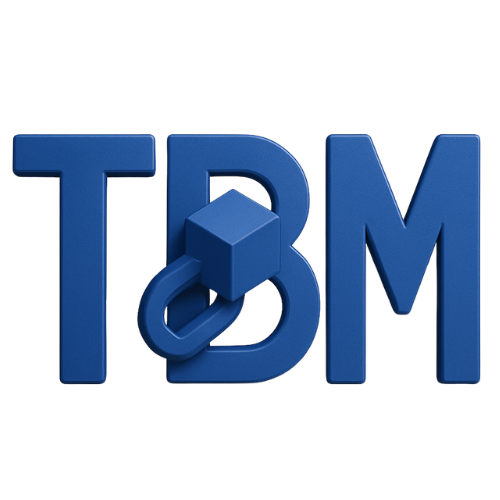Launching a Web3-first company in 2025 isn’t just about writing smart contracts—it’s about rethinking how organizations are built, governed, and sustained. In this deep-dive guide, we’ll explore how startups can be structured from day one as DAOs, how Web3 domains boost credibility and infrastructure, and why this model prepares you for a truly decentralized future.
1. Why Build as a Web3-First Company?
Traditional startups follow a centralized model: founders, VCs, boards, and structured hierarchies. Web3-first organizations offer compelling alternatives:
- Decentralized governance: Decisions made by community token holders.
- Alignment incentives: Tokens or NFTs give contributors real ownership.
- Resilience: No single point of failure—DAOs are built for distributed teams.
Think of it as moving from hierarchical corporations to community-coordinated ecosystems, where your growth depends on community health, not just founder resources.
2. Essential Foundations: Domains, Identity, and Branding
Before you code, you need an identity layer. Here’s where Web3 domains shine:
- .wallet: Use myapp.wallet as your Web3 login portal and payment receiver.
- .dao: myapp.dao becomes your governance hub—members vote here.
- .blockchain: bookhotel.blockchain for real-world use-cases powered by bookings and smart contracts.
Domains like these aren’t just URLs—they’re your front door to the Web3 ecosystem, conveying legitimacy, simplifying access, and securing brand equity.
3. Designing Tokenomics & Governance
Token vs. Equity
Tokens onboard users, contributors, developers, without traditional equity complexities. Whether ERC-20 revenue tokens or governance tokens, they can be initially minted for contributors and distributed by vesting.
Governance Models
Choose between:
- Single-token models (1 token = 1 vote)
- Reputation-token models (stake equals influence)
- Multi-role token systems for balanced power and contributor types
Case Study: learncrypto.dao
A decentralized educational platform issuing tokens to instructors and learners. Token holders vote quarterly on curriculum additions and marketing budgets, creating strong community alignment.
4. Structuring Your DAO: Smart Contracts + Community
a. Smart Contract Architecture
- ERC-20/ERC-721: For governance, memberships, and in-app assets
- Multisig wallets: Secure treasury management with 3/5 approvals
- Timelocks & upgrades: Ensures measured change via governance
b. Community Infrastructure
- Snapshot: For gasless proposal voting
- Aragon, Colony, DAOstack: Core DAO frameworks
- Discord & Telegram: Community coordination
- Domains: myapp.dao serves as a governance portal
Analogous to a traditional org chart, but powered by tokens and code, not hierarchy.
5. Real-World Transition: bookhotel.blockchain
Phase 1: Pilot
- Launch the standard startup with bookings
- Use bookhotel.blockchain for frontend + payments
Phase 2: Token launch
- Issue HOTELNFTs for early hosts/voters
- Token-gated access: early booking perks
Phase 3: DAO conversion
- Token holders vote on features
- Treasury and funds managed by DAO
- Hosts onboarded as stakeholders
Result: decentralized booking, host participation, community trust, and open-market competitiveness.
6. Legal & Compliance Considerations
Jurisdictions
- DAOs LLC in Wyoming offers a legal identity
- EU VPO frameworks emerging
Token Classification
- Structure token airdrops carefully to avoid securities issues
- Consult local regulations about token rights
Audits & Safeguards
- Regular smart contract audits
- Legal review of token models
With domains like legalhub.dao, you can establish governance for legal and compliance procedures.
7. Roles, Compensation & Contributor Incentives
Contributor Types
- Core devs: contribute smart contracts, infra
- Product & marketing: coordinate roadmap and PR
- Community managers: steward direction and interactions
- Task-based contributors: propose tasks, get paid per delivery
Compensation Design
- Token vesting on contributions
- NFT-based access for priority members
- Streaming payments via Superfluid for ongoing roles
Domains like creatorhub.wallet simplify direct compensation and professional identity.
8. Tools and Technical Stack Outline
| Layer | Tools |
| Domain | Unstoppable (.wallet, .dao, .blockchain) |
| Wallet Integration | MetaMask, WalletConnect |
| Frontend Hosting | IPFS via Fleek, Nest, React.js |
| Smart Contracts | Solidity, Thirdweb, OpenZeppelin |
| Governance | Aragon, DAOstack, Snapshot |
| Token Gating | Unlock Protocol, Guild.xyz |
| Treasury | Multisig (Gnosis Safe) + Chainlink Keepers |
| Analytics | Dune, The Graph |
Domains such as dashapp.wallet integrates these seamlessly.
9. Growth Tactics & Ecosystem Integration
- Collaborative DAO launches: use or offer DAO frameworks to partner communities
- Cross-token utilities: Gatebookhotel stays with HOTELNFT; connect to DeFi for revenue sharing
- Branded domains as infrastructure kits: license out DAOs as a service with token models
Domains like taasdao.blockchain (Token-as-a-Service) positioned the company as DAO infrastructure provider.
10. Future-Forward Trends and Staying Ahead
AI + DAO Governance
Intelligent agents analyzing proposals, forecast impact, and offer real-time economic suggestions.
Cross-Chain DAOs & Domains
Domains like .dao and .wallet are bridging across Ethereum, Polygon, and Cosmos, allowing multi-chain participation.
Reputation-Linked Access
Reputation token systems (BrightID, ProofOfHumanity) tie identities to domains via automated gates and native pods.
Domains like repxhub.dao serve as cross-app reputation anchors.
11. Key Takeaways for Founders
- Domain ownership is foundational – it unifies payments, governance, and branding.
- Plan token and governance from Day 1 – Don’t retrofit.
- Use modular tools & protocols – Enable agility and easy upgrades.
- Compensate via transparent tokens and NFTs – No surprises, full accountability.
- Account for legal overhead early, especially in your token and treasury design.
- Launch pilots, then convert – Latent value emerges with community transition.
- Stay on tech edge – AI governance, cross-chain, and reputation tokens are next-gen shifts.
Conclusion
Transitioning from a traditional startup to a fully decentralized organization doesn’t mean losing control—it means sharing ambition, trust, and ownership with your community. Domains like bookhotel.blockchain, creatorguild.wallet, or devops.dao isn’t just a name; it’s your organization’s foundation—secure, brandable, and portable.
By embracing structured token models, modular governance platforms, and legal recognition, founders can shape resilient, adaptable, and mission-aligned DAOs. You’re not just building a company—you’re building a commons.
Exploring domains like these early could open big doors tomorrow.
#Web3Startup, #DAO, #TokenGovernance, #Web3Domains, #DecentralizedApps, #Blockchain

